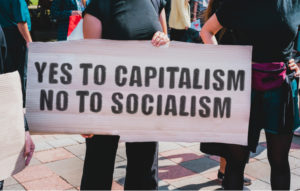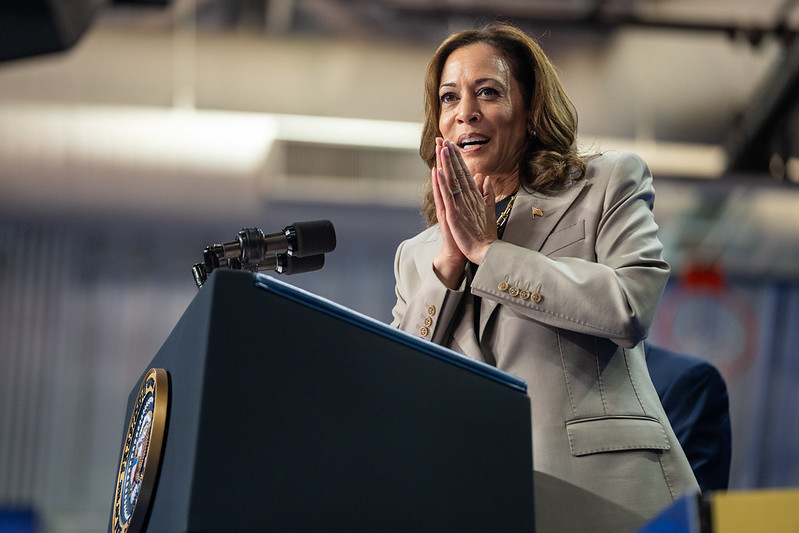
Milton Friedman’s Free to Choose TV series is, perhaps, the best explanation of the value of free and open economies. Friedman explains the concept of open markets and freedom in a way that every man and woman can relate to. But behind Friedman’s appearance was a brave TV station manager from Eire, PA named Bob Chitester.
Chitester put Friedman on the air and caused a phenomenon. William McGurn tells the story in The Wall Street Journal:
In the era of Bernie Sanders and Alexandria Ocasio-Cortez, champions of the free-market capitalism may feel beleaguered. Those of a certain age thought they’d won the argument against socialism along with the Cold War. Bob Chitester, a veteran of the earlier struggle, offers some perspective on its outcome.
Mr. Chitester is the man who made Milton Friedman a star. Friedman, who died in 2006, had already won the 1976 Nobel Prize for economics. But a balding, 5-foot-3 University of Chicago professor was an unlikely candidate for television celebrity. Even when he agreed to film the series that became “Free to Choose,” he thought of it only as a way to sell books.
But Mr. Chitester, 83, says television has its own power, and Friedman was a natural at using it. “It wasn’t so much that he was attracted to TV,” Mr. Chitester says. “He was attracted to people. And what he began to see was that TV had the potential to reach a lot of people.”
Their collaboration began in 1977, when the two men were introduced by W. Allen Wallis, a free-market economist who served as chancellor of New York’s University of Rochester and chairman of the Corporation for Public Broadcasting. At the time Mr. Chitester managed public TV and radio stations in Erie, Pa. After PBS released “The Age of Uncertainty,” presented by the left-liberal economist John Kenneth Gailbraith, Mr. Chitester wanted to produce a rejoinder from a classically liberal perspective.
Mr. Chitester was probably the only PBS or NPR station manager who didn’t believe public radio and television should receive subsidies from American taxpayers. But he had a skill in short supply among the pro-capitalist intellectual class: He knew how to popularize free-market ideas, which many thought couldn’t be done on television.
He confesses that he isn’t sure he’d even heard of Friedman when Wallis put the two in touch. But Mr. Chitester says he devoured Friedman’s 1962 book, “Capitalism and Freedom,” and went to meet Milton and his wife, fellow economist and collaborator, Rose, at their San Francisco apartment.
An hour into the conversation, Mr. Chitester brought up a section in the book where Friedman talks about the responsibility of business—also the theme of Friedman’s famous 1970 New York Times essay, “The Social Responsibility of Business Is to Increase Its Profits.” Mr. Chitester described his dilemma: “I said to Milton, based on your philosophy, I shouldn’t be asking companies for money, and if they take your advice, they’re not going to give me any.”
“Bob, don’t worry about it,” Friedman reassured him. “Businessmen don’t like me anyway.” The economist elaborated. “He said private owners—those who own their own companies—they will be sympathetic. But corporations and publicly held companies will play the political game.” In other word, they’d be shy about supporting such a project lest it hurt them when seeking government funding.
The series premiered in January 1980, featuring 10 hourlong episodes with titles such as “Who Protects the Workers” to “How to Cure Inflation.” Viewers were fascinated by this professor who explained capitalism in down-to-earth terms and showed how its principles relate to ordinary life.
Mr. Chitester says his “absolute favorite” moment in the series is at the end of episode five, “Created Equal.” Friedman is at Monticello, talking about the challenge of judging Thomas Jefferson, a man who wrote one of history’s greatest documents for liberty even as he owned slaves.
“Milton concluded the episode with the following quote: The society that puts equality before freedom will get little of either. The society that puts freedom before equality will get a great measure of both.”
“Free to Choose” drew an average three million viewers an episode and was later broadcast all over the world. The companion book, reworked from the transcripts by Milton and Rose, was eventually translated into 17 languages and became the bestseller for nonfiction in the U.S. that year.
Mr. Chitester found Milton Friedman more receptive to the idea of a TV series than Rose, who thought television was a waste of time. Milton had appeared on Dinah Shore’s talk show alongside journalist Shana Alexander and comedian Phyllis Diller. These were the Jimmy Carter years, and Shore asked him how an average investor could protect his money in a time of rising inflation. Friedman’s advice was succinct: “Spend it.” He later told Mr. Chitester that appearance brought him more mail than he’d ever received.
“Free to Choose” made Friedman an even bigger hit. “By the fifth program Milton could see what was going on,” Mr. Chitester says. “He told me, ‘Bob, people are calling me from all over the world asking me to invest their money.’ ” The Friedmans had to change their phone number and relist it under Rose’s maiden name.
One key to the appeal of the series is that it features Milton speaking on location all across the world to make his points—whether talking to an Indian carpet weaver or in West Berlin to contrast the freedom and prosperity there with the squalor on the communist side of the wall. That “helped motivate Milton,” Mr. Chitester says, because he thrived on human engagement. Even more remarkable, Mr. Chitester confirms everything was completely unscripted.
It helped that Friedman was quick on his feet: “With regard to the extemporaneous, he was considered one of the most effective and daunting debaters within the economic community. No one wanted to debate Milton face-to-face.”



